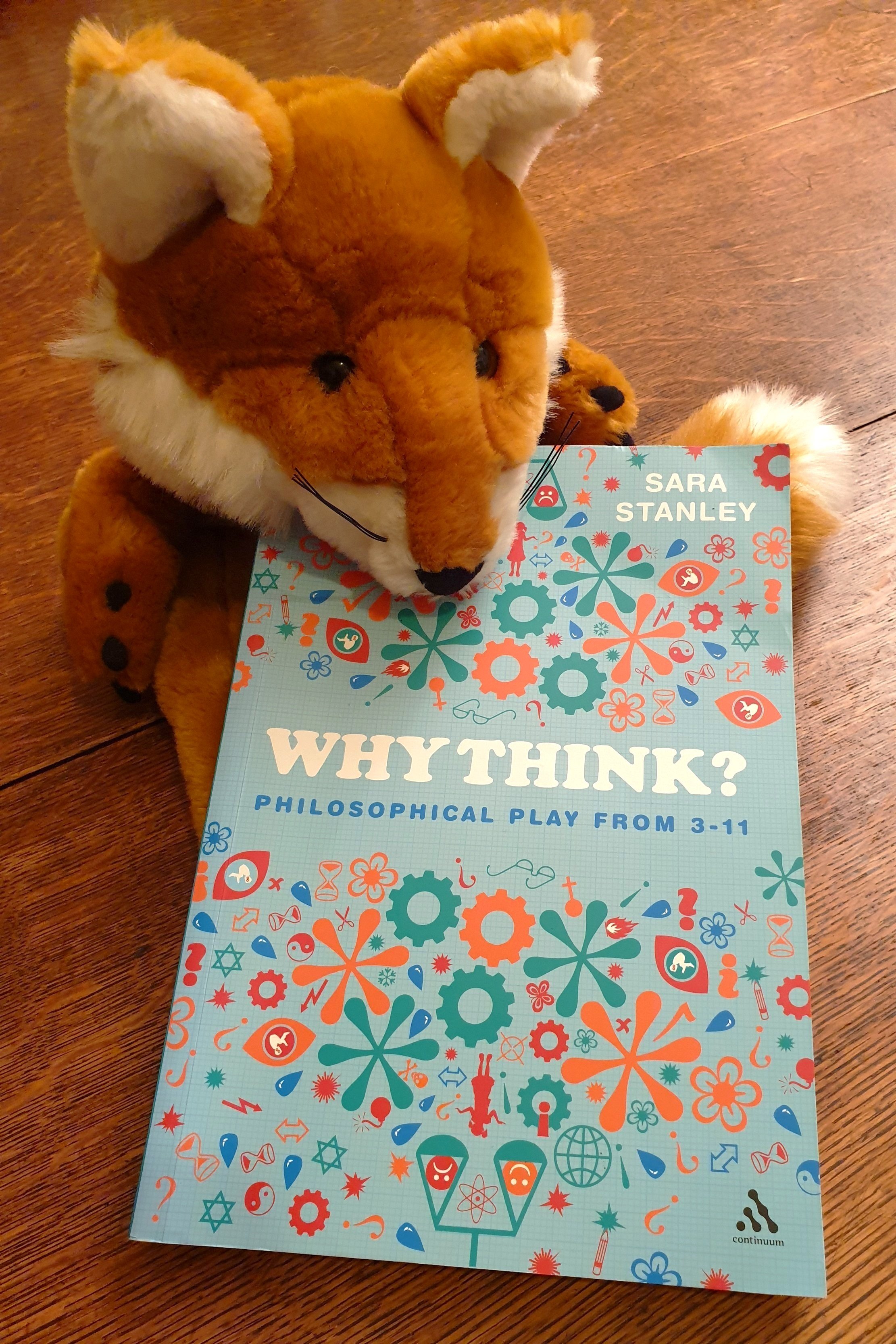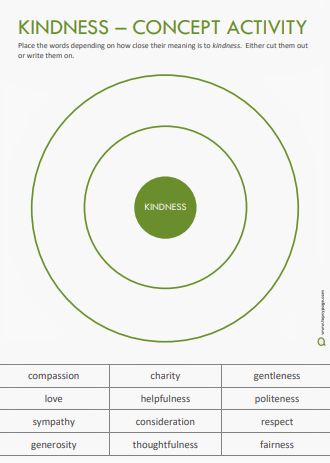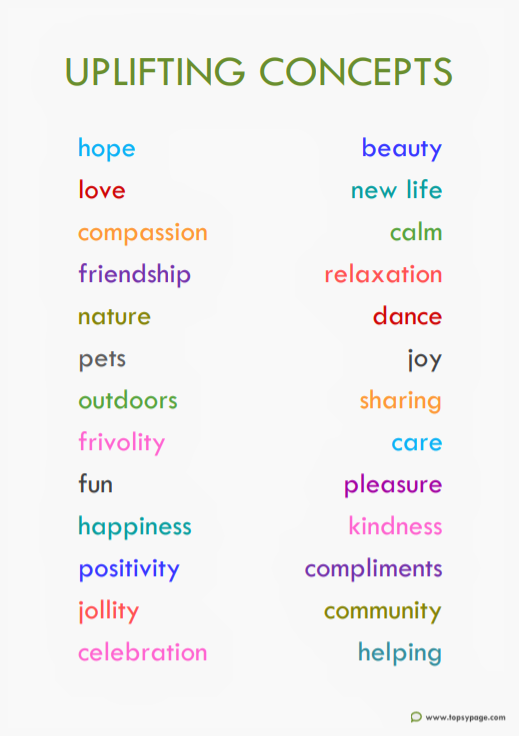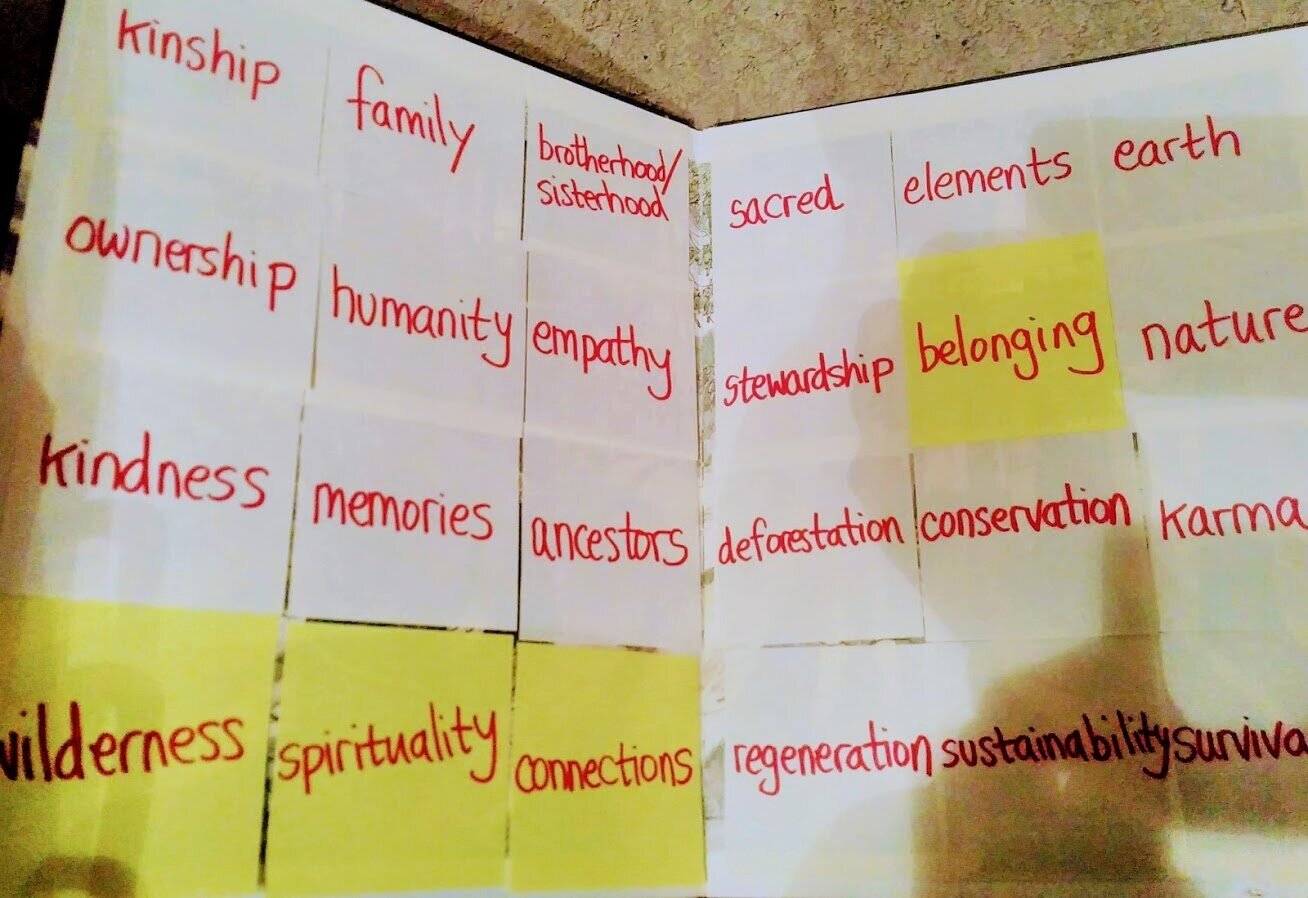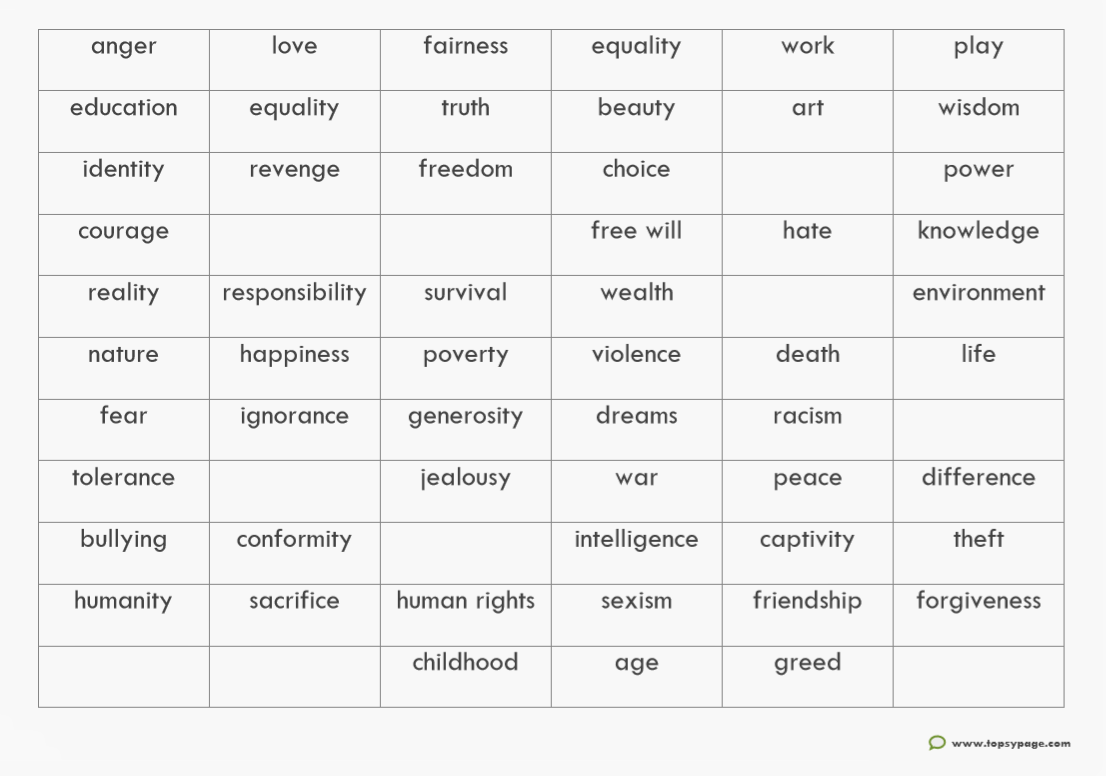When doing P4C, after the stimulus and before generating questions, it is helpful to identify the philosophical concepts or big ideas.

Recently I saw a great approach to this in a P4C session with a group of eight year olds.
Children in pairs used concept grids to highlight big ideas that they thought were in the story. They also filled in blank spaces with extra ones.
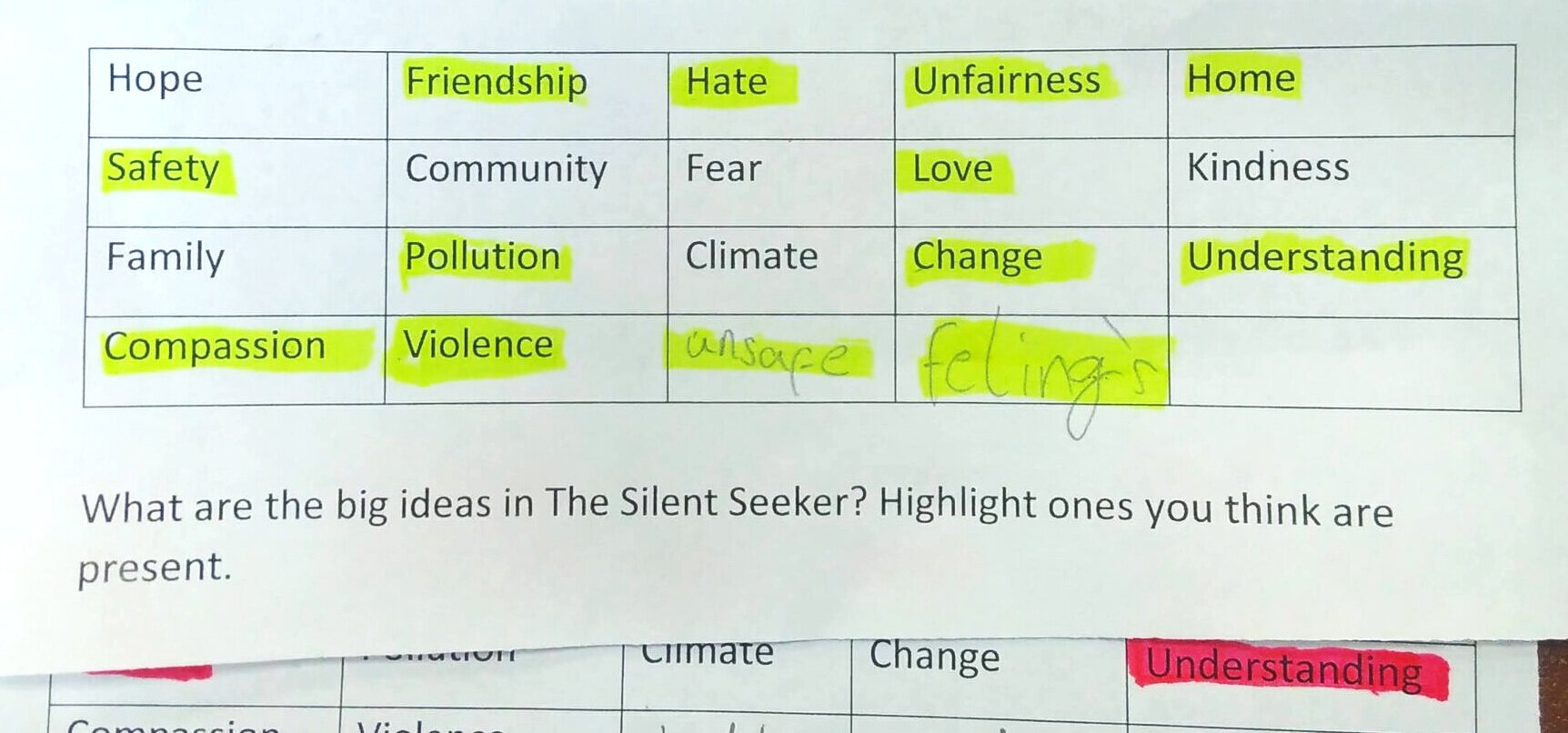
The children then brought their thoughts on the big ideas back to the P4C circle for further discussion. It worked like this:
At each turn, the teacher asked either Can anyone build on that idea? or Has anyone got anything more to say about ‘home’?
The children used key phrases: …and it is also… and I’d like to build on Lily’s idea…
As each child added verbally to the ideas of their peers, they also added a building block to a tower beside the big ideas, which were written on sticky notes.
This not only helped expand their vocabulary, but consolidated and deepened their understanding of certain words. For example, one child asked the class to help them with the meaning of ‘community’.
They decided to put some ideas together - making connections between different concepts, for example ‘kindness’ and ‘friendship’.
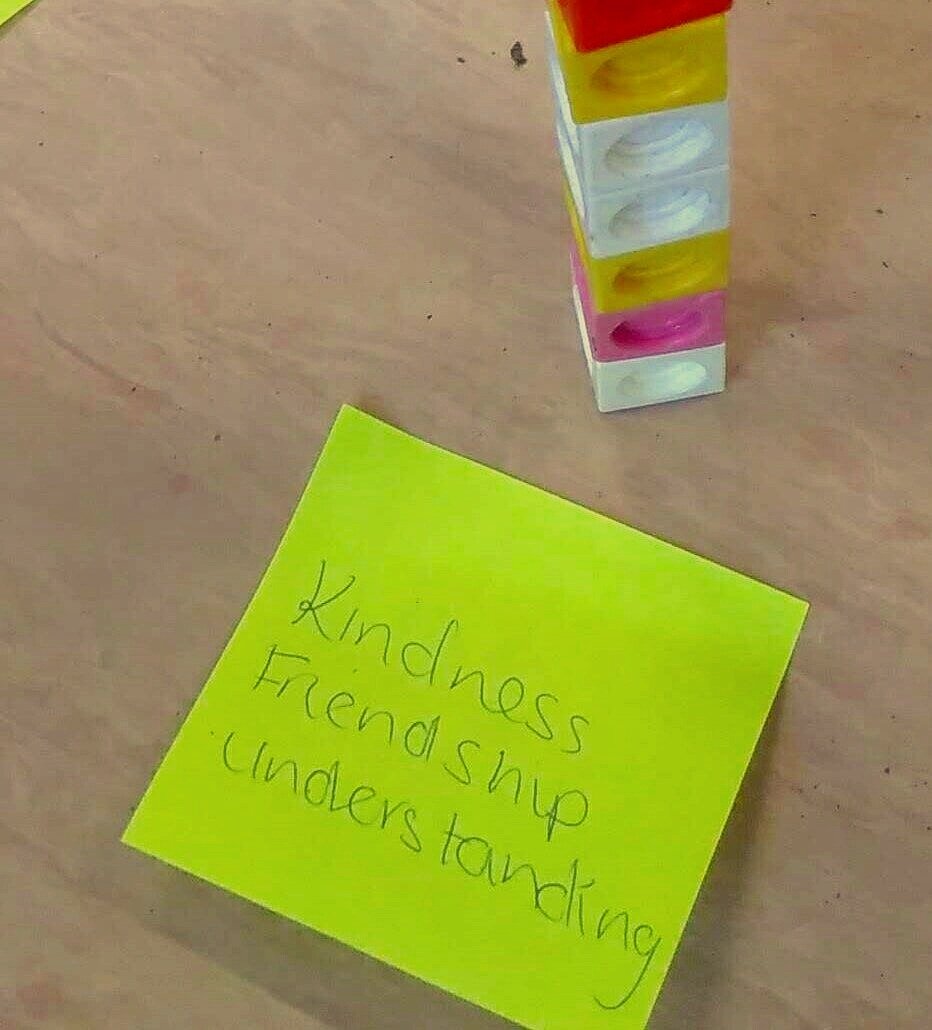
The towers also helped them see clear distinctions, for example there was a separate tower for ‘unfairness’.
I loved the way this approach engaged the children in deep dialogue even before generating a philosophical question.
This technique of using building blocks in P4C was inspired by Will Ord’s video: https://youtu.be/xb0zaqTsaqI.
Packed with example discussion scenarios, this book will help you raise your facilitation game
Full of practical ideas and lovely examples of children’s words; I recommend this book
Get students to think and talk about new words in the context of what they are learning
Help your pupils explore the 2021 theme, One Kind Word
A list of positive ideas including compassion, hope, and celebration - for use in P4C or circle time
Try using a well-known story such as Goldilocks and the Three Bears as a stimulus for classroom talk or P4C
A professional development opportunity for P4C leads and teachers on Thursday 24th September
A simple way to help learners structure their talk, thinking and note-taking.
A way to explore the key concepts in a stimulus and enable children to practice building on others’ ideas.
One aspect of P4C which often gets missed is to identify the key concept in a question and then stretch it or explore it more to deepen understanding.







